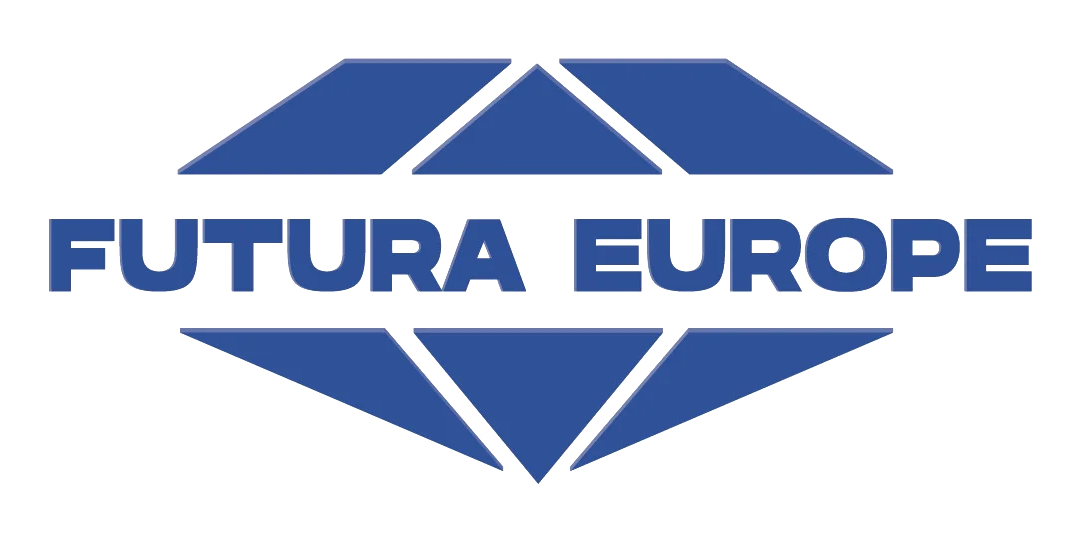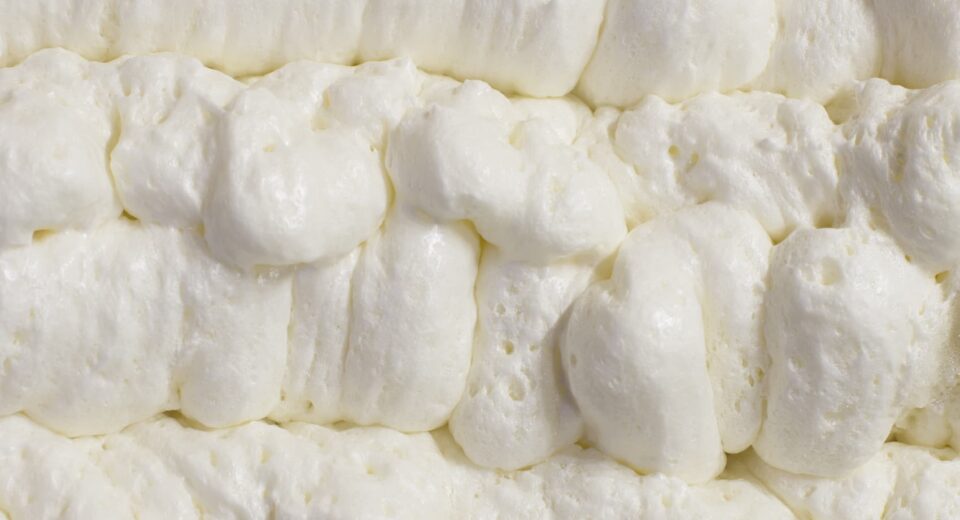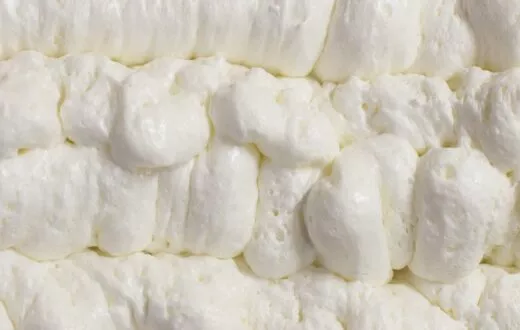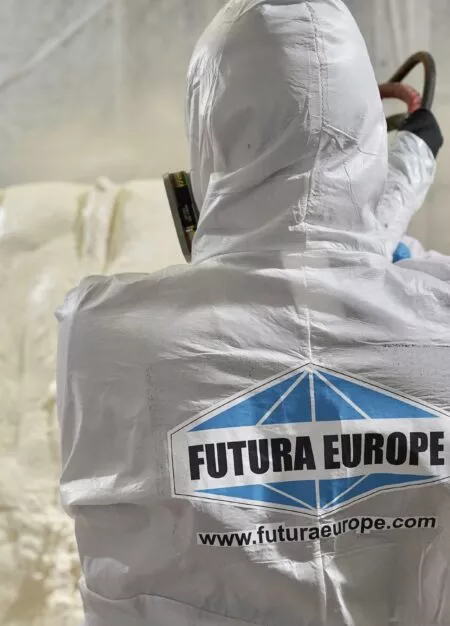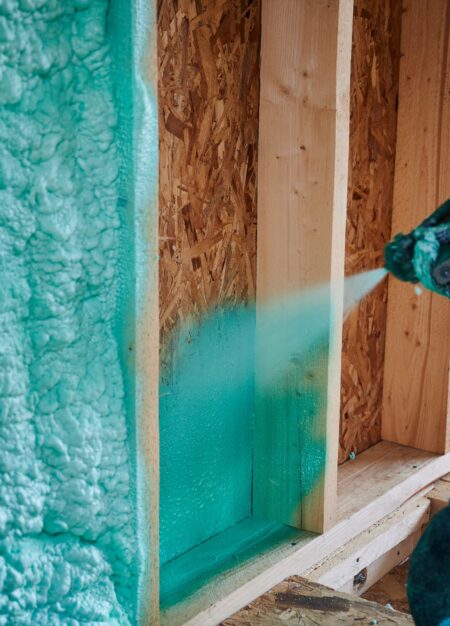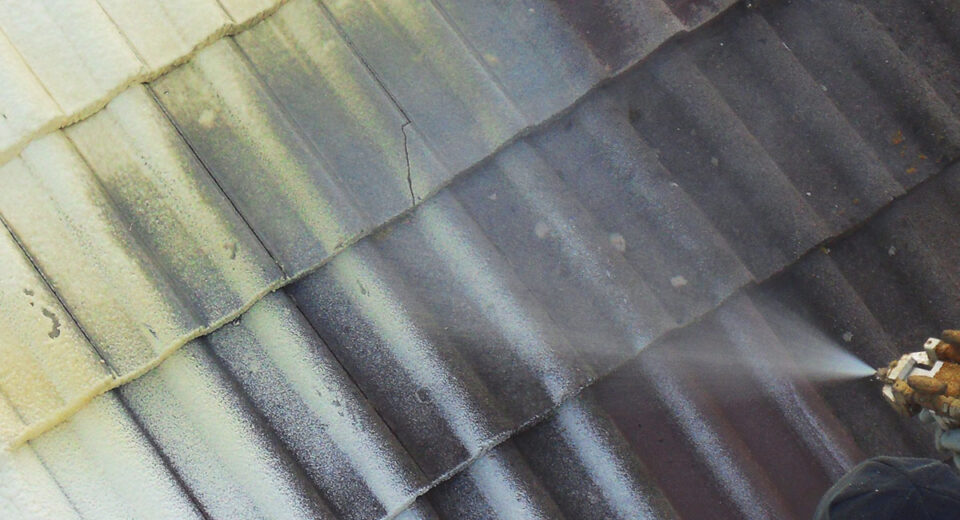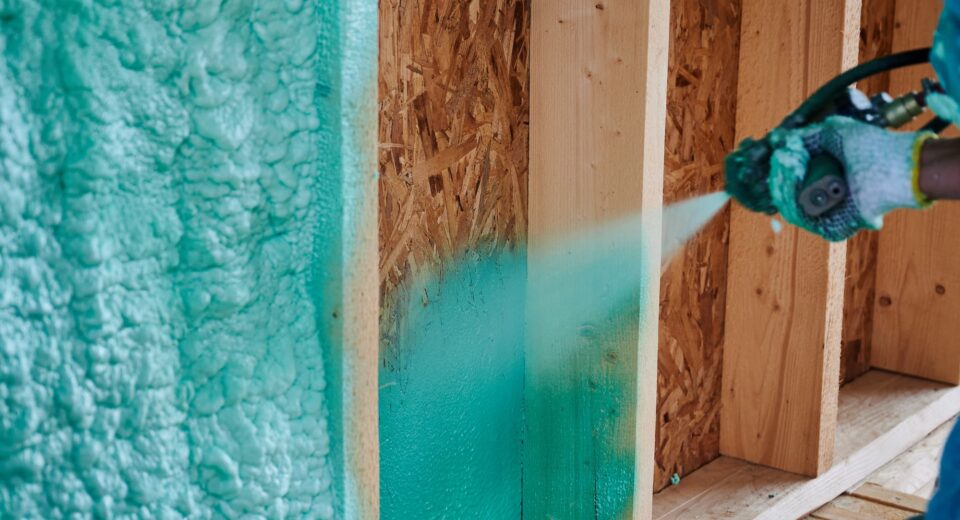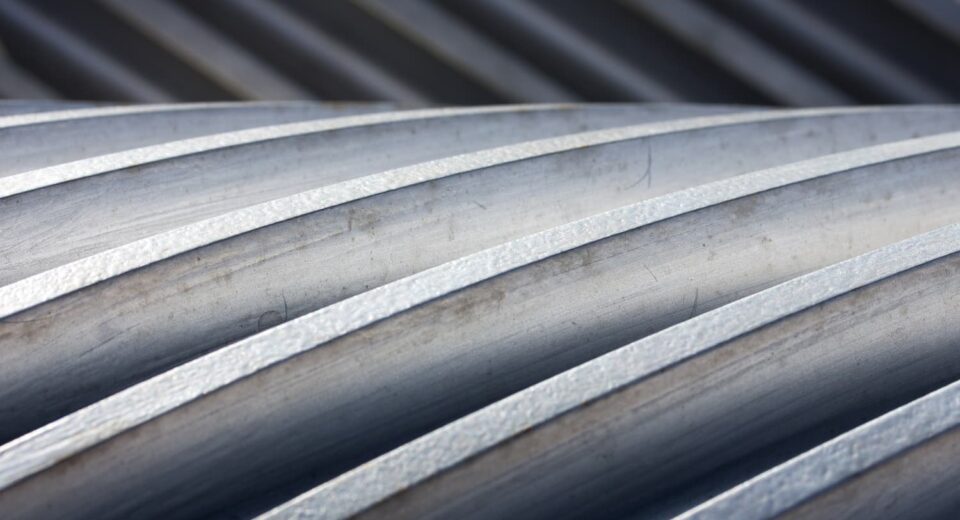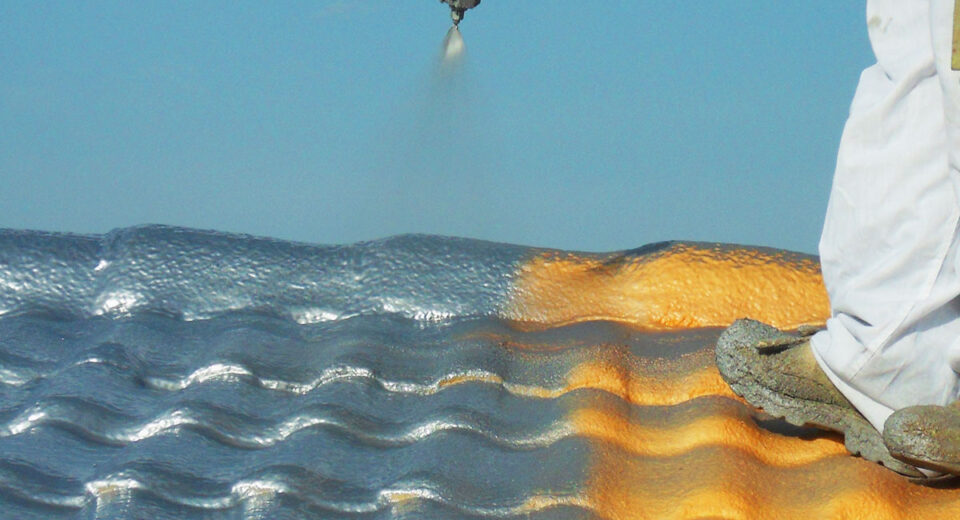Polyurethane is a synthetic polymer with diverse applications across various sectors. This material is created through a chemical reaction between isocyanates and polyols, allowing for the production of a wide range of materials with different physical properties.
Polyurethane foam, or expanded polyurethane, is a cross-linked thermosetting polymer obtained from the reaction of two components: a di-isocyanate and a polyol, in the presence of catalysts and/or other additives and special blowing agents.
One of the most distinctive features of polyurethane is its versatility. It can be used to produce both rigid and flexible materials, depending on the requirements. For instance, expanded polyurethane is commonly used for thermal and acoustic insulation in buildings, vehicles, and refrigeration equipment. Its light weight and excellent thermal insulation properties make it ideal for these purposes.
Polyurethane can also be applied by spraying to insulate spaces from both cold and heat, while also providing excellent acoustic insulation.

